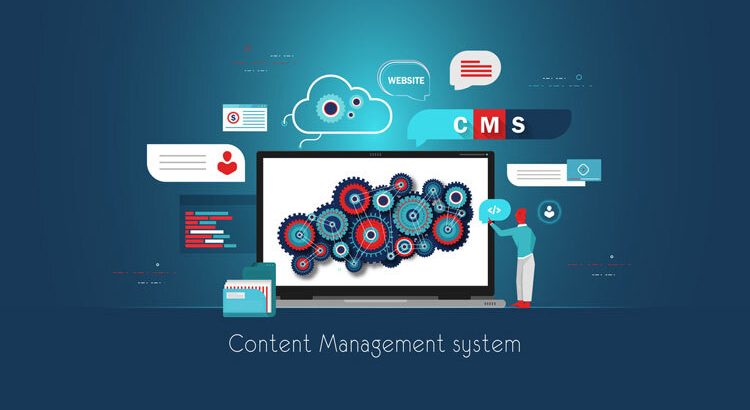Selecting the right Content Management System (CMS) for your website is a crucial decision that can significantly impact your online presence, user experience, and overall business success. A well-suited CMS allows you to create, manage, and optimize your content effectively, catering to your specific needs and goals. With numerous options available, it’s essential to evaluate each system carefully. Here’s a guide to help you choose the right CMS for your website.

Table of Contents
Toggle1. Define Your Goals and Requirements
Before diving into CMS options, clarify your website’s goals and requirements. Consider the following questions:
- What type of website are you building (e.g., blog, e-commerce, portfolio)?
- What features and functionalities do you need (e.g., SEO tools, analytics, social media integration)?
- Who will be managing the content? Will it require multiple users with different roles?
- How important is scalability for your future growth?
Defining your goals will help you narrow down your choices and ensure the CMS aligns with your business objectives.
2. Consider User-Friendliness
A user-friendly CMS is essential, especially if you or your team members have limited technical expertise. Look for a platform that offers an intuitive interface, making it easy to create and manage content without extensive coding knowledge. Check if the CMS provides a visual editor, drag-and-drop functionality, and clear navigation to enhance usability.
3. Evaluate Customization Options
Different websites have unique requirements, so it’s important to choose a CMS that offers customization options. Check for:
- Themes and Templates: A variety of pre-designed templates can help you quickly create a visually appealing website.
- Plugins and Extensions: These allow you to add additional features and functionalities without having to code them from scratch.
- Flexibility: Ensure the CMS can adapt to your specific needs and allow for future enhancements.
4. Assess SEO Capabilities
Search engine optimization (SEO) is vital for improving your website’s visibility and attracting organic traffic. Look for a CMS that offers built-in SEO features, such as:
- Customizable URLs
- Meta tags and descriptions
- XML sitemaps
- Image optimization
- Integration with SEO plugins
A CMS with robust SEO capabilities will help you optimize your content effectively and enhance your online presence.
5. Check for Scalability
As your business grows, your website will likely require additional features and functionalities. Choose a CMS that can scale with your needs. Consider the following:
- Can it handle increased traffic and content volume?
- Does it offer options for expanding features as your business evolves?
- Is it compatible with other tools and systems you might need in the future?
Scalability is crucial to ensure your website can grow alongside your business.
6. Look for Strong Support and Community
A reliable support system can be a lifesaver when you encounter issues with your CMS. Research the following:
- Documentation and Tutorials: Comprehensive guides can help you troubleshoot and learn how to use the CMS effectively.
- Customer Support: Check if the CMS offers timely support through live chat, email, or phone.
- Community Forums: An active community can provide valuable insights, tips, and solutions to common problems.
Choosing a CMS with strong support and an engaged community can make a significant difference in your experience.
7. Consider Security Features
Website security is crucial to protect your data and maintain user trust. Look for a CMS that prioritizes security through features such as:
- Regular updates and patches
- User authentication options
- Secure hosting environments
- SSL support
- Built-in security plugins
A secure CMS will help safeguard your website against potential threats.
8. Evaluate Cost and Budget
The cost of a CMS can vary significantly depending on the platform, features, and support options. Consider the following when evaluating your budget:
- Initial Costs: Some CMS platforms are open-source and free, while others require a subscription or licensing fee.
- Ongoing Costs: Factor in hosting, domain registration, and any additional plugins or themes you may need.
- Hidden Costs: Be aware of any potential costs for customer support, updates, or advanced features.
Choose a CMS that fits within your budget while meeting your website’s requirements.
9. Test the CMS
Before making a final decision, take advantage of free trials or demos offered by CMS platforms. This hands-on experience allows you to test the interface, features, and overall functionality. During your trial, pay attention to:
- Ease of content creation and management
- Customization options
- SEO capabilities
- User experience
Testing the CMS will help you assess if it aligns with your needs and expectations.
10. Seek Recommendations and Reviews
Finally, don’t hesitate to seek recommendations from peers or industry experts. Read reviews and case studies to gain insights into the experiences of others using the CMS you’re considering. Platforms like G2, Capterra, and Trustpilot can provide valuable feedback on various CMS options.
Conclusion
Choosing the right CMS for your website is a critical decision that requires careful consideration of your goals, requirements, and budget. By evaluating factors such as user-friendliness, customization options, SEO capabilities, security features, and support, you can select a CMS that aligns with your needs and helps you achieve your online objectives. Take your time, conduct thorough research, and test different platforms to find the perfect fit for your website. With the right CMS in place, you’ll be well-equipped to create, manage, and grow your online presence effectively.


No responses yet